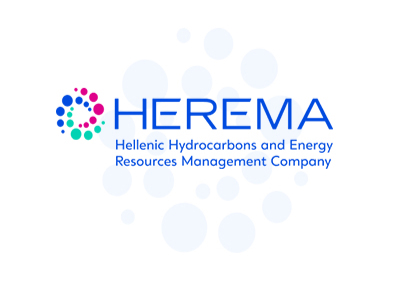PRESS RELEASE
Aristofanis Stefatos: There are Strong Indications that Crete Could Potentially Have Abundant Natural Gas Deposits
Speech by the CEO of HHRM at the FORTH-IENE conference “The Role of Hydrocarbons in the Energy Transition, Data and Policies” (Chania, October 25, 2021).
“There are compelling indications that Greece – and specifically Crete – could have abundant natural gas. Our mission is to encourage investors, in every way possible, to quickly proceed with the necessary seismic and geological surveys to gain clarity on the existence, size, and potential value of these deposits.” This was the main message sent by Dr. Aristofanis Stefatos, CEO of Hellenic Hydrocarbon Resources Management (HHRM), speaking at the conference titled “The Role of Hydrocarbons in the Energy Transition, Data and Policies” organized by the Foundation for Research & Technology – Hellas (FORTH) and The Institute of Energy for South East Europe (IENE).
Mr. Stefatos highlighted the critical role that natural gas plays as a bridging fuel in the energy transition, which, as he said, “is about much more than switching our energy systems to renewable energy sources. This is a long-term investment opportunity that will transform our entire energy system over a 30-50 year horizon.” He explained that there are two parameters for the use of natural gas that need to be considered: “From a technical perspective, natural gas plays a vital role by contributing energy efficiency, baseload stability to the energy system, in addition to being key in the development of a hydrogen industry. From a financial point of view, benchmark European gas prices have jumped over 250% since the start of the year. European energy producers are paying close to €90 per megawatt-hour for natural gas, while their counterparts in Israel and Egypt – countries in the Eastern Mediterranean basin that produce natural gas – have long-term gas contracts and are paying approximately €12 per megawatt-hour.”
According to the CEO of HHRM, “this means Greece currently has a unique opportunity to develop its upstream natural gas industry, which could contribute to the advancement of the ‘green transition,’ boost energy security, while presenting significant financial and geostrategic opportunities. The key to succeeding is enabling the monetization of Greece’s natural gas deposits while ensuring any offshore energy activities are conducted and monitored to be in line with the highest standards of environmental and social protection.”
“HHRM’s main priority is to promote the development of the country’s natural gas deposits. However, and looking ahead, our aim is to support the deployment of new energy technologies through cross-pollination opportunities with the oil and gas industry such as carbon capture and storage (CCS), underground storage facilities (UGS), blue hydrogen production, and the development of offshore wind farms – particularly bearing in mind the significant amount of know-how that offshore wind platforms draw from the oil & gas industry,” said Mr. Stefatos. “The potential benefits of these investments justifies the capital risk,” he concluded.
